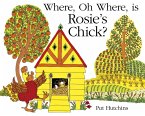"Pollyanna" is a 1913 children’s novel by American writer Eleanor Hodgman Porter. It is the first in a multi-author series of thirteen novels, collectively titled Glad Books. The novel introduces the series’ protagonist, a young, optimistic, occasionally naive girl named Pollyanna, who deals with the everyday trials of being an adolescent in a small town.
In the novel, the orphan girl Pollyanna moves in with her miserable aunt in New England. Despite being unwanted, Pollyanna’s exuberance and positivity affect everyone who meets her, and she spreads joy and love wherever she goes. But when tragedy strikes, Pollyanna finds her optimistic attitude tested and she must learn to find happiness again.
Pollyanna’s character is the origin of the “ Pollyanna principle,” a psychological term regarding the tendency for humans to remember positive experiences more fully than negative ones.
A heartwarming tale that has become one of the most loved children’s stories of all time and has been adapted into several films. In 1915, Porter wrote a sequel that continues where the first book ended, called "Pollyanna Grows Up".
In the novel, the orphan girl Pollyanna moves in with her miserable aunt in New England. Despite being unwanted, Pollyanna’s exuberance and positivity affect everyone who meets her, and she spreads joy and love wherever she goes. But when tragedy strikes, Pollyanna finds her optimistic attitude tested and she must learn to find happiness again.
Pollyanna’s character is the origin of the “ Pollyanna principle,” a psychological term regarding the tendency for humans to remember positive experiences more fully than negative ones.
A heartwarming tale that has become one of the most loved children’s stories of all time and has been adapted into several films. In 1915, Porter wrote a sequel that continues where the first book ended, called "Pollyanna Grows Up".









